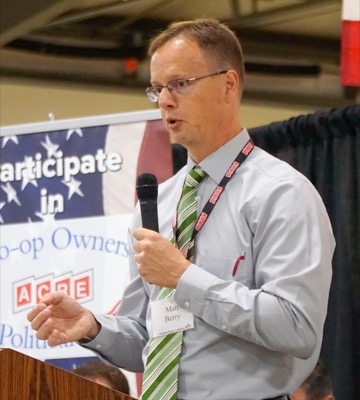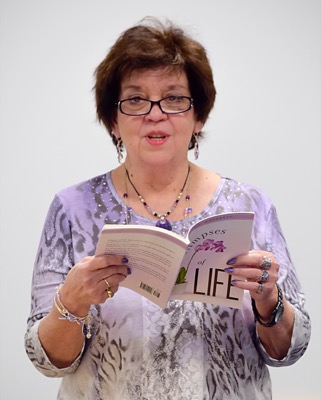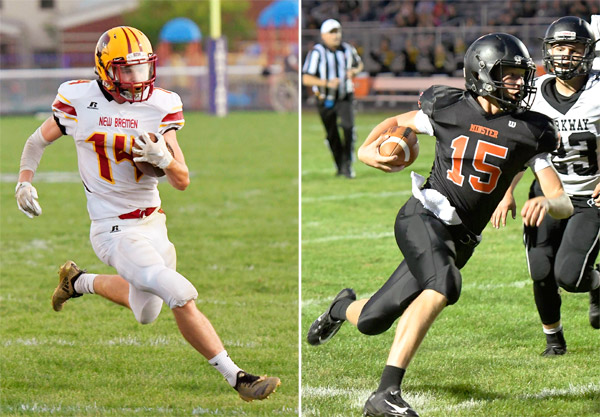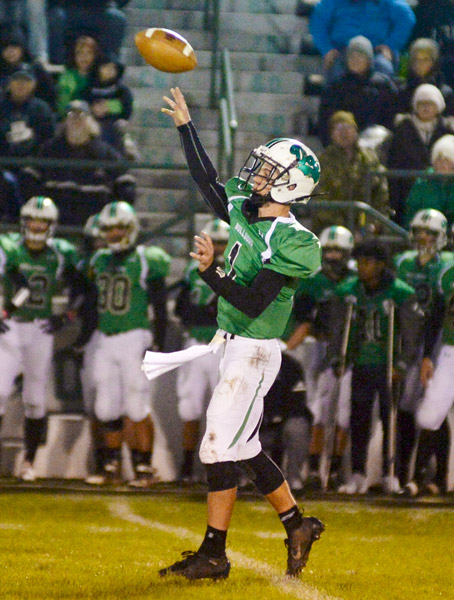Thursday, October 25th, 2018
Co-op CEO slams Ohio's kilowatt tax
By William Kincaid

Photo by William Kincaid/The Daily Standard
Midwest Electric CEO Matt Berry welcomes a large crowd at Midwest Electric's political action breakfast on Tuesday morning.
ST. MARYS - Midwest Electric CEO Matt Berry called attention to a state tax that he said drains resources from the nonprofit, customer-owned electric cooperative serving about 11,000 homes, farms and businesses in west-central Ohio.
Berry broached Ohio's kilowatt-hour tax while welcoming a large crowd at Midwest Electric's political action breakfast on Tuesday morning. The tax is levied on electric distribution companies with end users in Ohio, according to the Ohio Department of Taxation.
"Ohio's electricity tax is the highest in the nation. The average Midwest Electric member pays in taxes about $100 a year," Berry said, adding it costs the cooperative about half a cent per kilowatt hour of electricity. "Nationwide, the average is about $20 a year. In fact, the Ohio kilowatt-hour tax is our fourth-highest expense at Midwest Electric."
Berry said to make matters worse, Ohio's municipal utilities collect the tax but get to keep it in the general fund for any purpose.
"Whereas we collect if from you - $1.2 million a year - and then it all goes on to Columbus," he said.
If the playing field were level, Midwest Electric could use the annual $1.2 million in taxes to keep rates stable, return money to members or make additional reliability improvements, Berry said.
"Like the city of St. Marys - they collect the tax, but they get to keep it and use it locally, which creates a pretty significant unfair advantage, if you will, with electric co-ops, and it also gives those municipals further incentive to encroach into our territory," Berry added later in the session.
He said preliminary discussions on the issue are underway in Columbus.
Pat O'Loughlin, CEO of Buckeye Power, which supplies electricity to nearly 400,000 customers in Ohio, including Midwest Electric members, agreed with Berry.
"We all know we got to pay taxes to support our government, and the kilowatt-hour tax is one way to do that, but (what) we think is everybody ought to pay the same and right now certain municipalities have certain exemptions where they're allowed to not pay that," O'Loughlin said. "We're hoping to get more equity across the state in whatever tax system that we have for that."
Berry also detailed positive happenings at Midwest Electric. The cooperative continues to invest up to $3 million a year on electrical reliability improvements and is about to launch a distribution automation project for further reliability, he said.
Also, the cooperative's Community Connection Fund has donated more than $1 million to local charities, while its economic development fund has loaned $2 million to area small businesses, he said.
Next month, the cooperative will extend bill credits totaling $1.5 million to customers through patronage - capital credits representing member equity ownership in the cooperative, Berry noted.
"We're able to do all these things and yet still provide cash back to our members and without a rate increase," he said. "We have not raised rates since August of 2010, and we don't anticipate a rate increase in 2019."



